
This is a significant accomplishment of both documentary filmmaking and personal discovery for the subjects in this film, including Director Bing Liu. It starts with primitive camera work following three adolescent boys and their passion for skateboarding and what happens to them as they grow up. Liu is director, interviewer and also one of the subjects of the film.
You first see him, along with friends Keire, and Zack during what appear to be carefree days doing challenging and often dangerous skateboard tricks. But by the end of the film, you understand that skateboarding, for them, was not only a passion, but an escape from the internal hurts of abuse, neglect and domestic violence.
The film traces the friendship of these boys over the course of a decade living in the blue collar town, Rockford, Illinois, outside of Chicago. Liu started shooting their feats as a boy. You see his camera work develop throughout the film, first as his own home movies.
Because they’re friends, he’s earned their trust. That plays a large part in their opening up to him. The camera does not intimidate them. They are completely open and honest. That lets Liu get inside their heads including his own, as they grow older. They look back on their lives revealing their inner most thoughts about trying to overcome hardship and mistakes.
Keire is very likable, always has a smile on his face. But there’s more to him than meets the eye. Keire is African-American. He’s charismatic, always laughing, yet having to deal with racism. Keire manages to avoid drugs and alcohol, despite an sometimes abusive relationship with his father, who has died. The scene in the cemetery when Keire tries to find his grave is heart breaking. As the camera follows him on the search Lui builds this emotional tension that releases in a flood of tears.
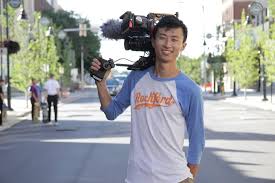
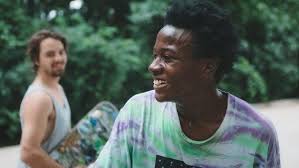
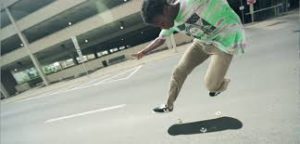
Liu depicts Zack as a charismatic slacker always laughing, no matter no matter how serious the situation. The director also shows that it’s really Zack’s defense mechanism for his bad family relationships. He tries to escape, not only with skateboarding, but with drugs and alcohol. Liu also shows graphically that Zack and his girlfriend are much too young have a baby and the director is able to capture what they are trying to do to maintain some kind of sanity in their frustrating relationship.
Liu confronts his own demons when he interviews his Vietnamese mother. As the interview progresses Liu finds he didn’t he know what he was getting himself into. She’s been married three times and one of the step-Dads was totally abusive to her and to Liu. The last shot after his interview when he thinks he’s stopped rolling shows him sitting half framed on the screen, not knowing he’s still being filmed. He’s obviously emotionally drained. Revealing his pain presents an unforgettable moment. It was very brave to include this very poignant section of the documentary.
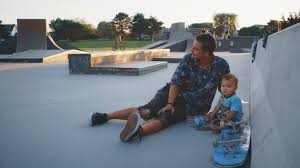
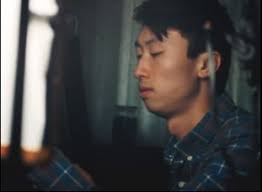
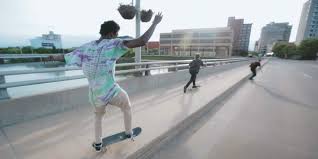
The camera work and co-editing with Josh Altman deserve special mention. Liu weaves the timeline over the years without losing the essence of each boy. He uses the primitive footage shot in adolescence and adds the more skilled camera work he’s developed shooting skate and music videos, and working with steady cam operators on TV shows. There are remarkable follow shots using a Glidecam that go on for ever. Liu actually ran behind his buddies as they negotiated long obstacle courses, but the result is smooth as silk. You will feel as if you’re along for the ride.
Liu is already working on his next project tackling the subject of gun violence. Liu is one very sensitive and talented filmmaker who learned from the ground up. In addition, he happens to be a helluva skateboarder.
Styx 1 hour 33 minutes Documentary Reviewed September 7, 2018



